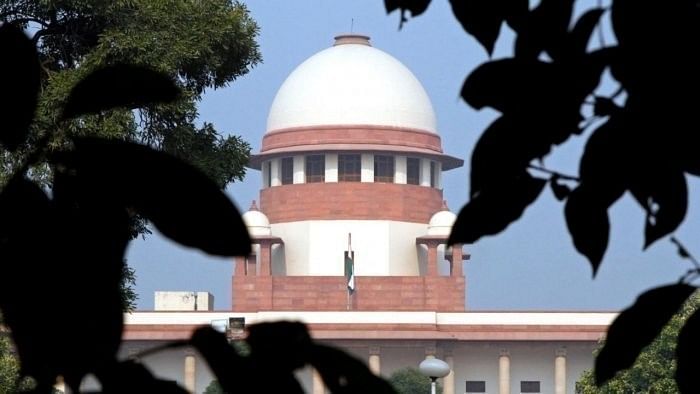
The Supreme Court of India.
Credit: PTI File Photo
New Delhi: The Supreme Court on Friday said it would consider advancing date of hearing on a plea of the West Bengal government against a Calcutta High Court verdict striking down the OBC status of several castes, mostly Muslim groups, for granting reservation to them in public sector jobs and state-run educational institutions.
The top court is scheduled to hear the appeal on September 30 and the litigants, including the Trinamool Congress-led state government, have sought advancing of the date of hearing.
A bench comprising Chief Justice D Y Chandrachud and Justices JB Pardiwala and Manoj Misra was urged by senior advocate N K Kaul that 77 communities have been "de-reserved" and due to the impugned judgement, the admission process in relation to them are getting affected.
"I will pass an order (on advancing the date of hearing) in the afternoon. Please circulate an e-mail," the CJI told Kaul.
The top court had earlier on August 5 asked the state government to provide quantifiable data on social and economic backwardness of fresh castes it has included in the Other Backward Classes (OBC) list and on their inadequate representation in the public sector jobs.
While issuing notices to private litigants on the plea of the state government against the high court verdict, the bench had asked the authorities to file an affidavit giving details of the consultations, if any, conducted by it and the state's backward classes panel before including the castes, mostly Muslim groups, in the OBC list.
The high court had on May 22 struck down the OBC status of several castes in West Bengal granted since 2010, holding as illegal the reservation for them in the public sector jobs and state-run educational institutions.
"Issue notice, including on the application of stay (of the judgement filed by the state government). The state of West Bengal shall file an affidavit before this court explaining the process followed for classification of 77 communities as OBCs : (1) the nature of survey; (2) whether there was a lack of consultation with the Commission (state backward panel) in respect of any communities in the list of 77 communities designated as OBCs," the bench had said.
The bench had also asked whether any consultation was done by the state before the sub-classification of the OBCs.
"The state shall clarify the nature of study relied upon by it (for inclusion of castes in OBC list)," the CJI had said, adding it would give an opportunity to the state government to respond to the findings of the high court.
The top court notices were issued to Amal Chandra Das, Nilmadhab Karmakar, Aatmadeep, Purabi Saha and others. They had moved the high court against the inclusion of these castes in the OBC list.
While striking down the OBC status of several classes granted since 2010, the high court had said, "Religion indeed appears to have been the sole criterion" for declaring these communities as OBCs. The high court had said that it is of the view that the "selection of 77 classes of Muslims as backwards is an affront to the Muslim community as a whole".
Maintaining that this court's mind is not free from doubt that "the said community (Muslims) has been treated as a commodity for political ends", the bench had said, "This is clear from the chain of events that led to the classification of the 77 classes as OBCs and their inclusion to be treated as a vote bank." Passing the judgement on petitions challenging the provisions of the state's reservation Act of 2012 and reservations granted in 2010, the high court had clarified that the services of citizens of the struck-down classes, who are already in service or have availed the benefit of reservation or have succeeded in any selection process of the state, will not be affected by the order.
In all, the high court struck down 77 classes of reservation given between April 2010 and September 2010. It also struck down 37 classes for reservation as OBC given under the West Bengal Backward Classes (Other than Scheduled Castes and Scheduled Tribes) (Reservation of Vacancies in Services and Posts) Act, 2012.
While the court had scrapped the 77 classes over "illegality" of reports recommending such classification, other 37 classes were removed from the OBC list for non-consultation by the West Bengal Backward Classes Commission.
The bench had also struck down an executive order of May 11, 2012 creating several sub-classes.
The high court ruled that the directions will take effect prospectively.